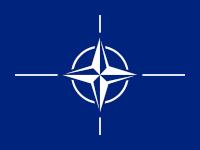"We have to underline NATO's enduring commitment to finishing Europe's unfinished business -- but also its relevance to emerging challenges, such as proliferation threats and vulnerabilities in our energy supply." Thus remarked NATO Secretary General Jaap de Hoop Scheffer at a conference sponsored by the Center for International Relations in Warsaw on March 13. Leaders of the 26 member countries are meeting in Bucharest this week to increase NATO's collective defense capabilities and deepen transatlantic ties. While the alliance has adopted a basic approach to guarding energy infrastructure, plans to widen the scope of a NATO energy security policy will present one more test to its solidarity. The real division lies in individual approaches of NATO members to an assertive, energy-rich Russia. The concept of energy security as a NATO priority is not new. Since the alliance's inception, the NATO Pipeline System of 10 storage facilities and a distribution network assured security of supply during war. In April 1999, NATO's Strategic Concept -- the core mission statement of the alliance -- underscored that security interests can be affected by the disruption of the flow of vital resources. After Sept. 11, 2001, NATO launched Operation Active Endeavour to monitor potential terrorist threats in the Mediterranean and the Strait of Gibraltar -- critical chokepoints of energy transport to Western Europe -- by providing escorts to non-military shipping vessels.
Will NATO Play a Larger Role in Eurasian Energy Security?

